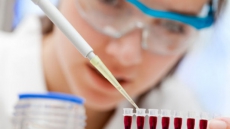Next time you come across an advertisement offering cosmetic stem cell procedures not only to give your skin a glowing look but also to stop it from growing old, beware.
Most of such ads claim benefits from procedures that have not undergone rigorous scientific evaluation - including potential risks related to stem cell and tissue processing and the effects of ageing on stem cells, a new research warns.
"Stem cells offer tremendous potential but the marketplace is saturated with unsubstantiated and sometimes fraudulent claims that may place patients at risk," warned Michael T. Longaker from Stanford University's Medical Center.
The procedures marketed as "stem cell facelifts" are often just "lipofilling" procedures, "an established fat injection technique with no prolonged anti-ageing effect", Longaker added.
To gain insight into these claims, researchers performed a Google search for cosmetic stem cell treatments, the most common of which was "stem cell facelift".
Most procedures used "stem cells" isolated from fat.
However, the websites provided little information on the quality of the stem cells used.
Without advanced cell-sorting procedures, the products used in these procedures likely contain many other types of cells besides fat-derived stem cells.
To date, just one stem cell procedure for cosmetic purpose has received the approval from the US Food and Drugs Administration (FDA).
That product, designed to treat fine facial wrinkles, is undergoing extensive post-approval surveillance.
"With plastic surgeons at the forefront of stem cell-based regenerative medicine, it is critically important that we provide an example of a rigorous approach to research, data collection, and advertising of stem cell therapies," Longaker concluded.
The research was published in the journal Plastic and Reconstructive Surgery.





